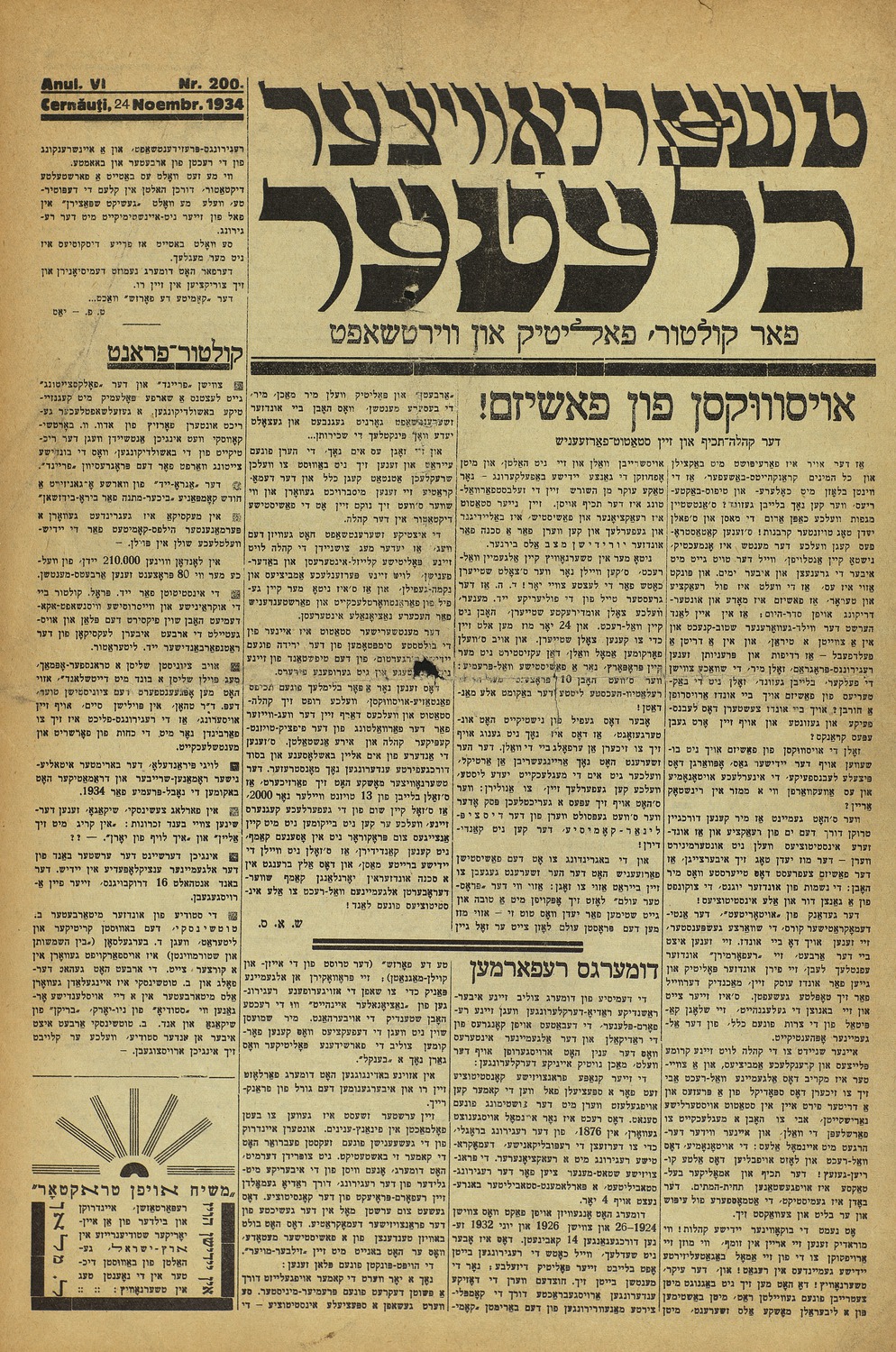
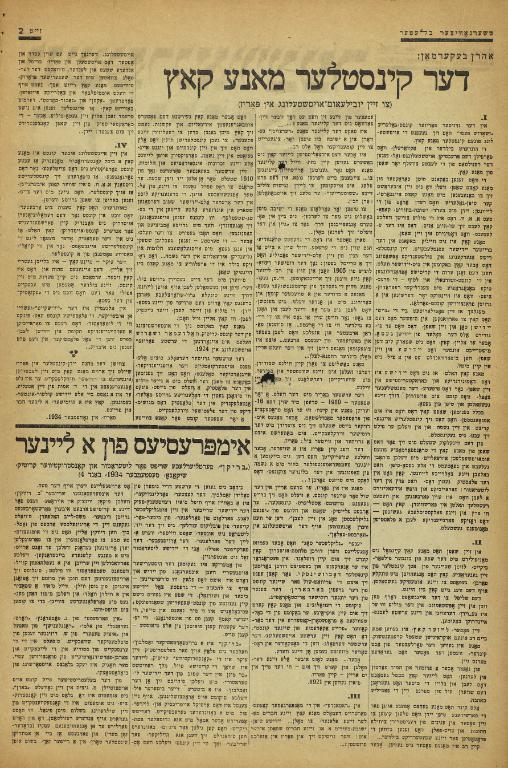
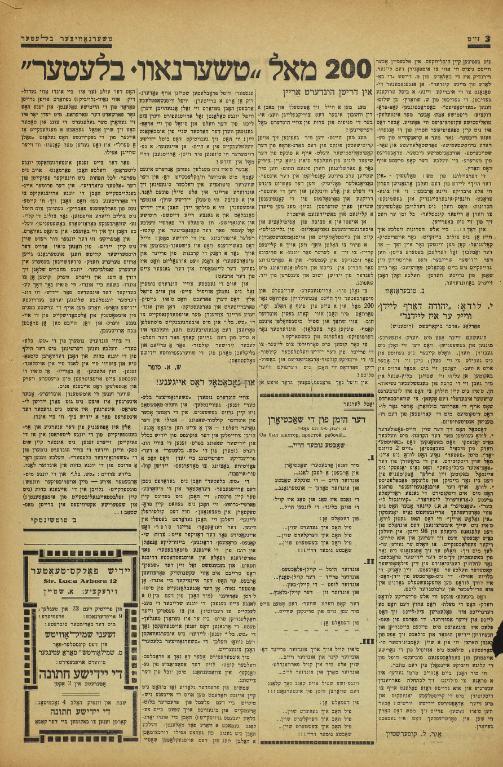
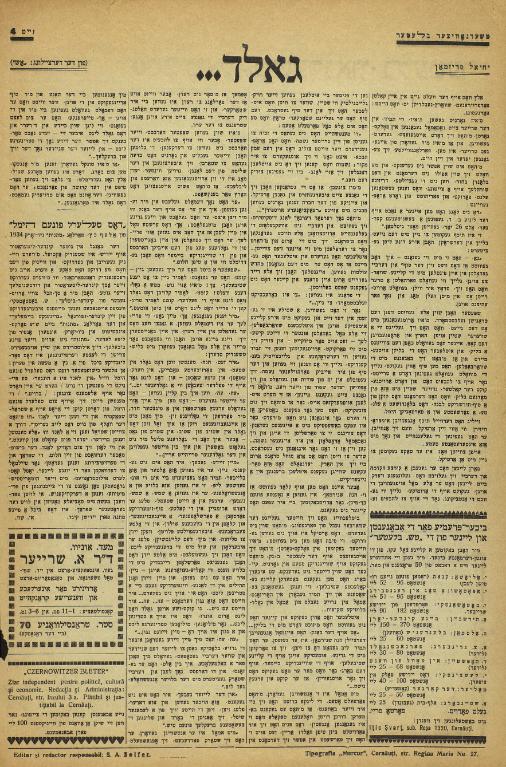

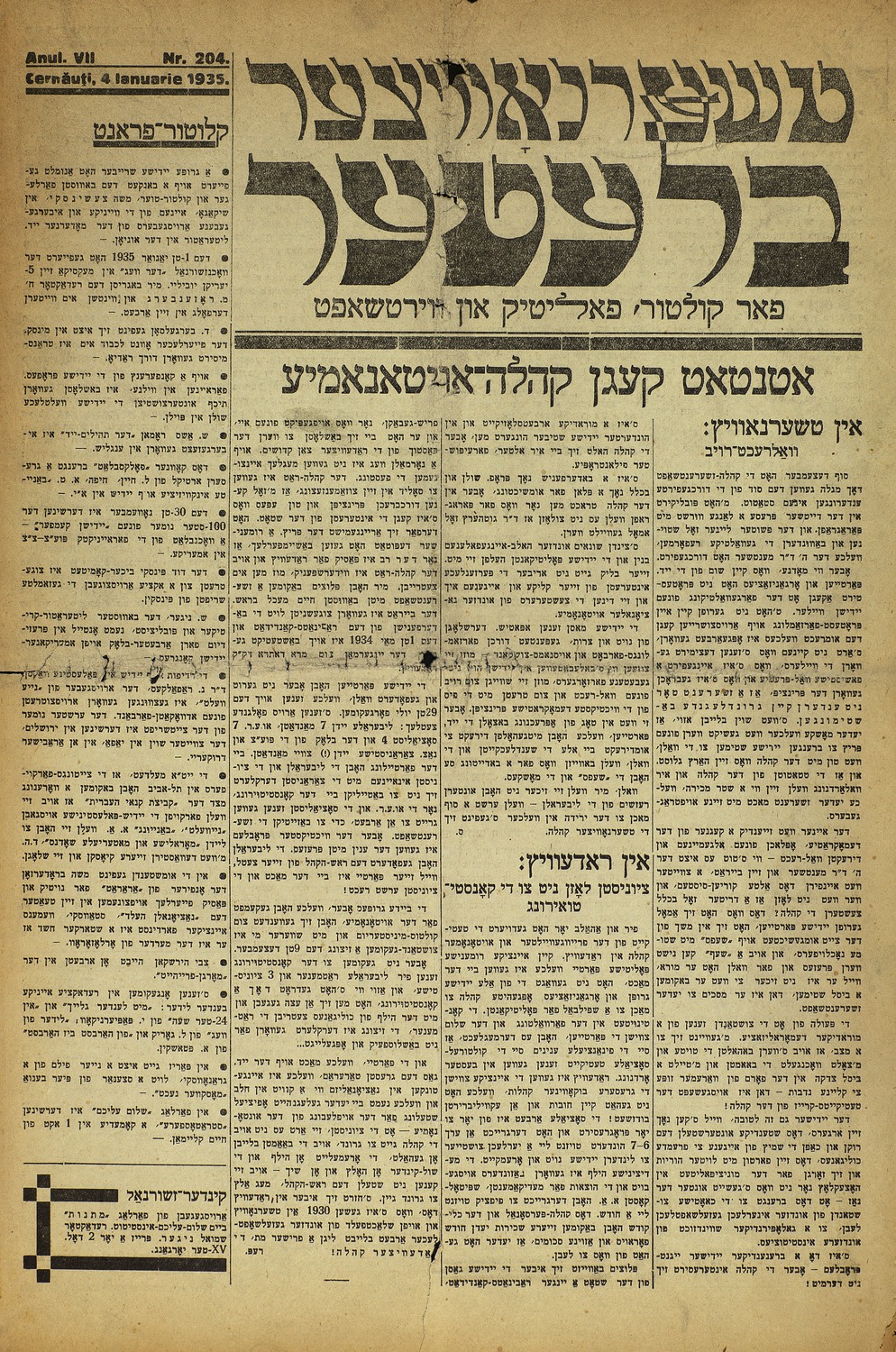
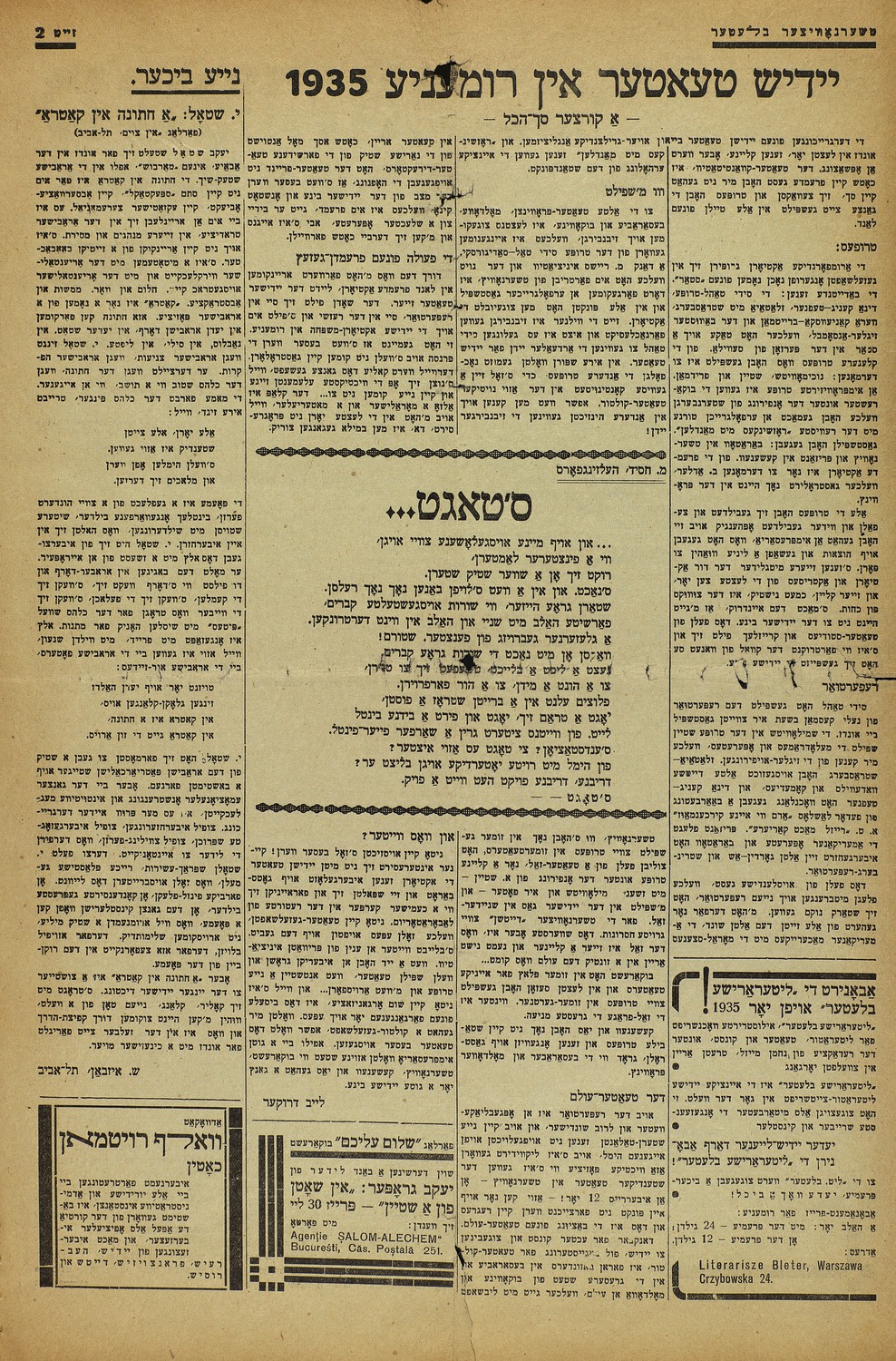
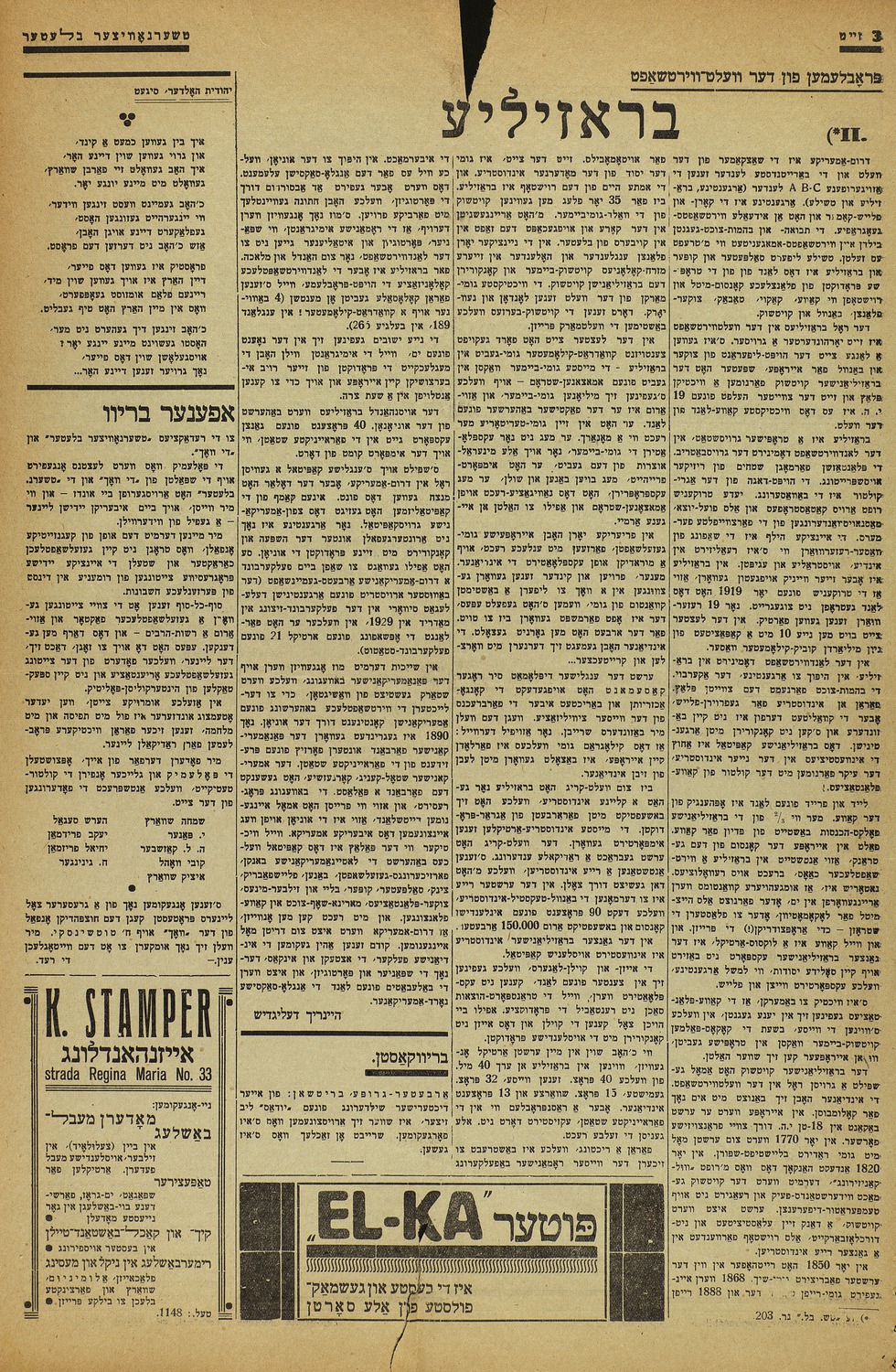
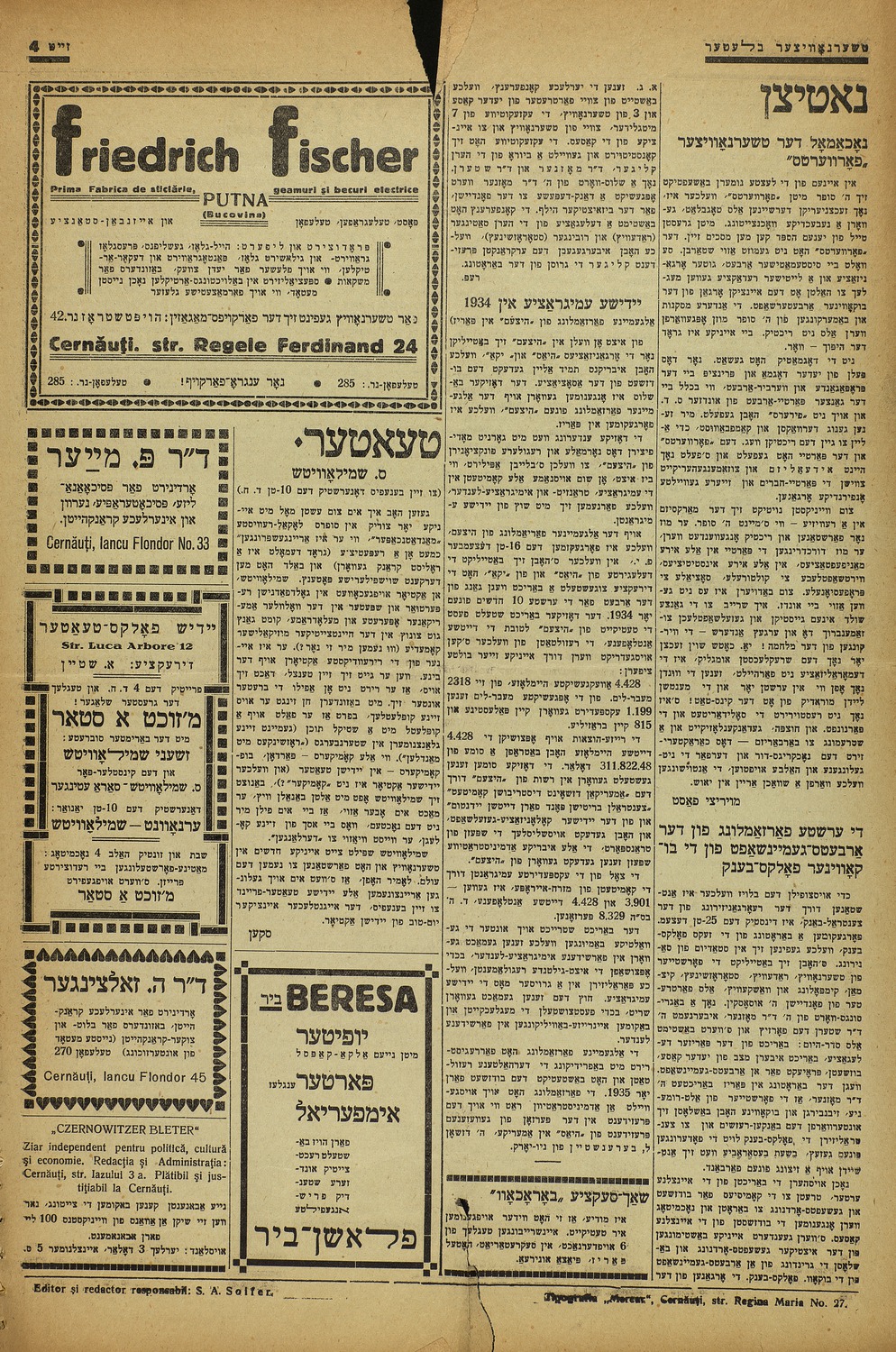

Tchernovitser Bleter far kultur, politik un virtshaft (Yiddish)
1934
Czernowitz
From the Isser and Rae Price Library of Judaica
Tchernovitser Bleter far kultur, politik un virtshaft (Yiddish)
1935
Czernowitz
From the Isser and Rae Price Library of Judaica
Before the Second World War, Czernowitz was a university town in Romania known for its intellectual and artistic life and the multicultural composition of its population. By 1919, Jews made up almost half of the population: the tolerant atmosphere having enabled them to thrive. The Jewish community contributed greatly to the city’s political and commercial life and gave birth to a wealth of writers and poets, including the celebrated Paul Celan. Many of these writers made their debut in the local Yiddish newspaper Tchernovitser Bleter first published in 1928. This bimonthly journal – just 4 pages in length – featured articles on literature, poetry and politics. The issue from 24th November 1934, displayed here, is a commemorative edition celebrating the 200th issue of the newspaper. The 4th January 1935 edition, also shown here, celebrates almost 60 years of the Yiddish theater, which was first founded in Romania in 1876. Samuel Aba Soyfer served as the journal’s editor until the paper was banned in 1938. He was shot three years later by the Romanian authorities. According to an international commission report released in 2004, over 280,000 Romanian Jews were systematically murdered by the Romanian regime during the war. The report concluded that of all the allies of Nazi Germany, Romania was responsible for the deaths of more Jews than any country other than Germany itself. Today, little trace of Czernowitz’s Jewry remains. A hardcopy of this community’s journal is held at just one other institution; less than five other libraries retain copies on microfilm.
View other issues of Tchernovitser Bleter far kultur, politik un virtshaft


